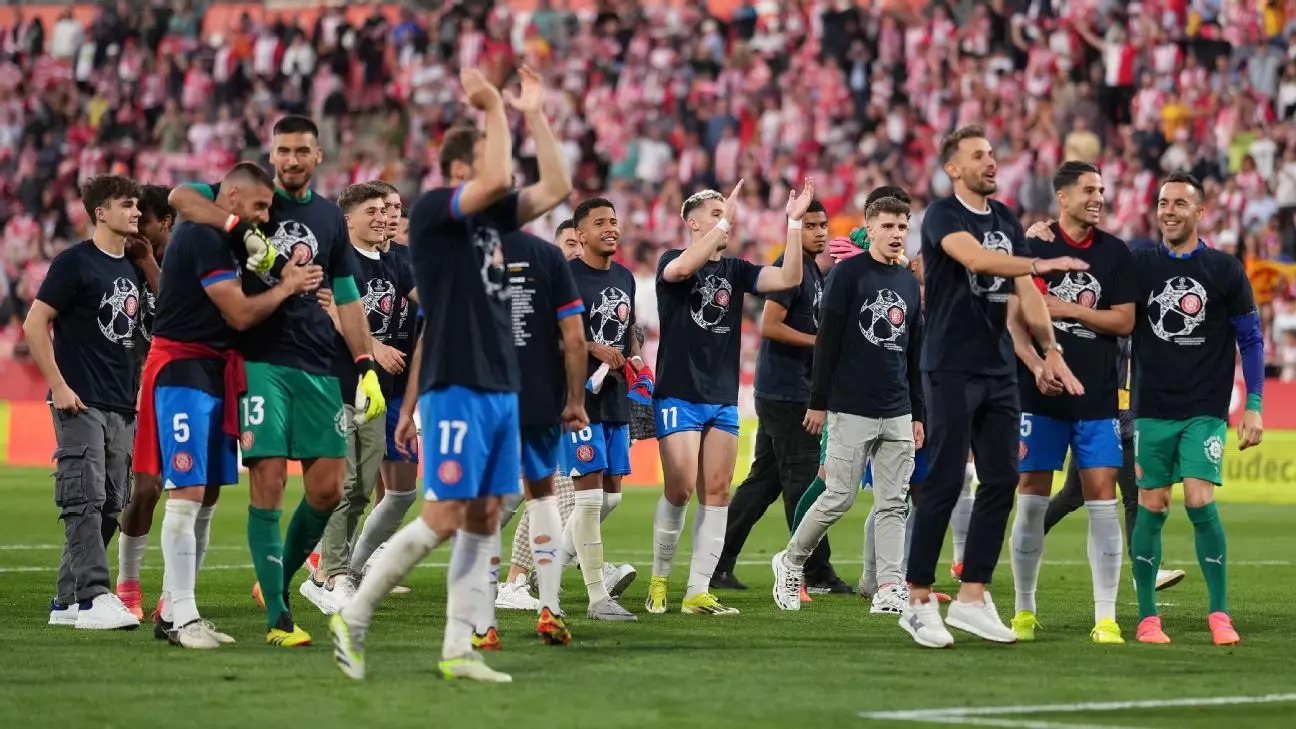The recent success of both Manchester City and Girona in their respective leagues has brought to light a significant issue regarding multi-club ownership. UEFA has offered divestment options to the Abu Dhabi investors in order to ensure compliance with integrity rules for teams that share owners. This ultimatum comes as both clubs are set to compete in the Champions League next season, but their shared ownership structure has raised concerns about collusion in games. Failure to comply with UEFA’s rules by the proposed deadline of June 3 could result in one of the two teams, most likely Girona, being demoted to the Europa League.
According to a UEFA document seen by The Associated Press, City Football Group (CFG) has two options to address the multi-club ownership issue. The first option involves selling shares to an independent third party to reduce one ownership stake to below 30%. The second option entails transferring all shares in one club to a blind trust overseen by a panel appointed by UEFA. These measures aim to mitigate the potential for collusion and ensure fair competition in European club competitions. The trustee could be selected by CFG in a UEFA-approved model similar to the compliance deal for other clubs like AC Milan and Toulouse.
Girona, part-owned by the brother of Manchester City manager Pep Guardiola, has made a remarkable run to a guaranteed top-four finish in Spain’s LaLiga. This success has been attributed to key players, including Brazilian star Sávio, who have either been loaned or sold via Man City’s influence. As Girona prepares to enter the elite European competition for the first time, the club’s rapid ascent has raised questions about the impact of multi-club ownership on fair play and competition integrity.
Girona’s transfer dealings this season have come under scrutiny due to CFG’s “decisive influence” over both clubs. The club has transferred three or more players with other CFG clubs, either directly or indirectly via related parties, which has triggered UEFA’s concerns about collusion. Players like Yan Couto and Sávio, who are on loan from Man City and French club Troyes respectively, have played key roles in Girona’s success. Sávio, in particular, has been a standout performer with his dynamic style of play and goal-scoring ability.
The formation of CFG in 2013 marked a new era of multi-club ownership in football, with Manchester City serving as the flagship club in a global portfolio that includes teams across multiple continents. The acquisition of Girona in 2017 was part of CFG’s expansion into European football, adding to an already extensive network of clubs worldwide. However, this rapid growth has raised concerns about the potential risks of collusion in games and the transfer market, as well as the ability of top-tier clubs to manipulate financial monitoring rules.
As UEFA imposes strict rules on multi-club ownership to safeguard the integrity of European club competitions, clubs like Manchester City and Girona face a critical decision in the coming weeks. The divestment options offered by UEFA present a path to compliance, but the implications of these measures on the future of club ownership and competition structure remain uncertain. The outcome of this ultimatum will not only shape the fate of these clubs but also set a precedent for addressing the challenges of multi-club ownership in modern football.
